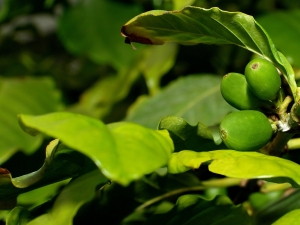 Heard about organic coffee? Want to know what an organic coffee is? Well, according to several researches, the concept of organic coffee has long been considered in the coffee industry as a special practice. The concept actually holds the idea of protecting the environment from harmful chemicals and pesticides that may pollute and destroy the groundwater and may cause erosion in coffee farms when the farms are cleared. Also, it goes beyond protecting the environment as the organic method may help protect the coffee farmers from degenerative diseases like cancer.
Heard about organic coffee? Want to know what an organic coffee is? Well, according to several researches, the concept of organic coffee has long been considered in the coffee industry as a special practice. The concept actually holds the idea of protecting the environment from harmful chemicals and pesticides that may pollute and destroy the groundwater and may cause erosion in coffee farms when the farms are cleared. Also, it goes beyond protecting the environment as the organic method may help protect the coffee farmers from degenerative diseases like cancer.
With such reasons, many of the coffee farms these days highly prefer the organic method of coffee farming. They cultivate their coffee plants by organic means – producing coffee without the use of pesticides and other chemicals. The coffee is grown and cultivated purely and naturally and this practice is deemed by many as beneficial to coffee producers and to its consumers as well.
In the organic coffee industry, much emphasis is given to the way the coffee is produced. The emphasis may extend to the recycling process, composting, health of the soil where the coffee is grown, and even to the biological activity that takes place in the coffee farm. All of these are maintained for the long term protection of the coffee farm and the environment. It’s no wonder then that in this kind of environment, synthetic chemicals are highly avoided.
For the farmers knowledge, to market a highly organic coffee is to pass certain laws maintained by the Department of Agriculture. In the United States, for a coffee company to be able to market a certified organic, the farm from which the coffee is taken must be inspected first to receive the so-called certification. What usually happens during this practice is that in every step of the processing chain, the inspectors work to track the coffee beans as they are transferred from the source to the cup.
In addition to that, it is maintained that to protect the integrity of the process, the organic coffee must be sold to the certified importers and roasters. Well, the advantage of this process on the part of the consumers is that people who love coffee will then be guaranteed for the purity of the coffees they buy. And, to make the organic coffee obvious to the consumers, the USDA has announced that 95% of the organic products must bear the label “organic”.
With certain laws and rules passed, several organic coffee products are now marketed free from pesticides and herbicides. They are now marketed anywhere in the world and it was noted that about 50% of the products bear the organic label with the organic ingredients. So if you want to help protect the environment and yourself from synthetic chemicals, the organic coffee products will surely fit your needs.


